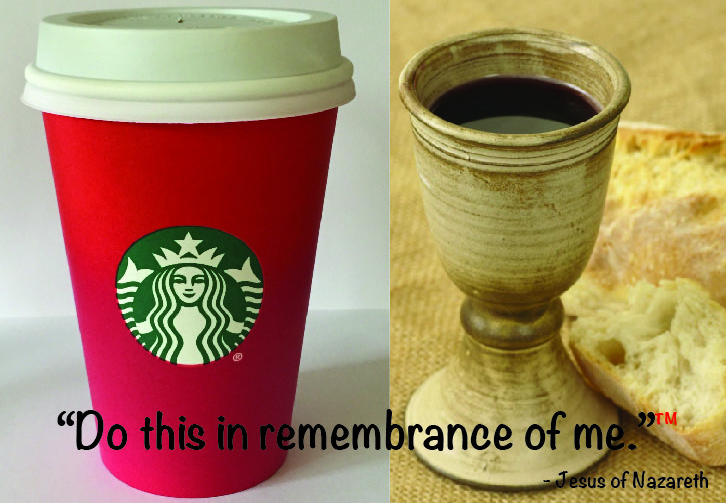What does it mean to be a Christian? Who is against us? Who is for us? These questions asked by the text this week, also reverberate throughout our current cultural context. Think of the debate, division and diatribes this past week about what the coffee cups at Starbucks have and don’t have. Think about the way in which our Presbyterian Church is broken. Individual churches are leaving our larger church, claiming an exodus for doctrinal orthodoxy and spiritual legitimacy that can only be had in a divorce-like separation. Yet then we claim that we maintain a communion together. Think of the members of our continuing political spectrum whom will invoke faith in Jesus in order to score any points and gain any increase in support that is possible. How is that Christian? How are we?
We rarely read this section of scripture for a regular Sunday gathering of faith. It would seem that once a year, during Holy Week, is enough for remembering this tragic, sad and mysterious story. Yet it’s at the very heart of the gospel. It’s the key thing that Mark is trying to retell and invites us to hear (Mark 14:12-15:47). If you analyze the gospel you’ll see that Mark spends covers two whole days with two verses in Mark 14:1-2. He then goes on to spend the next 108 verses to describe 24 hours. It’s as if he puts on the brakes in the speed of his story-telling to slow down, telling us to take a good look, to not miss anything. So what are we not to miss?
The first paragraph has a feeling of mysterious intrigue: Jesus is returning to Jerusalem to celebrate the Passover – to remember and retell the story of God delivering the Israelites from slavery in Egypt to freedom life in the Promised Land. While this annual holiday takes place, Jesus seems to have second-sight, to know the future. And yet the disciples either are radically surprised, or don’t have the time to be so. Their faithful response is to roll up their sleeves and to get to work, doing what Jesus asks and being with Jesus and each other.
This mysterious intrigue turns dark with the announcement of a sure and certain betrayal by an intimate friend. Yet none of the friends seem to know if it’s them or not. What is this community of the 12 who appear to know neither themselves or each other, let alone the one they call Teacher?
The third paragraph is the telling of a concrete ritual action, which tweaks and transforms the Haggadah story of Exodus Freedom. It’s not the blood of the lamb that protects the people from God’s wrath, but the blood of Jesus – the new Moses – which is spilled as an atoning sacrifice for all people.
The fourth paragraph turns a corner: the darkness of the coming night of horrors has arrived. But the disciples – the good friends of Jesus – seem to be completely deaf to what is being said and blind to what is happening. They are ironically all too wrapped up in vying for the title of “more faithful than thou.” They both seem to know Jesus and not see him; they claim to follow him but don’t know where he’s going; they listen to his words but can’t hear what he’s saying. Is it any different today? Are we?
Questions for Going Deeper:
- What do you think is the message of this gospel selection?
- How have you experienced it as truth in your life?
- What invitation do you hear from God in this text to act, say, be or do?
Download the textual study notes I composed [HERE]
